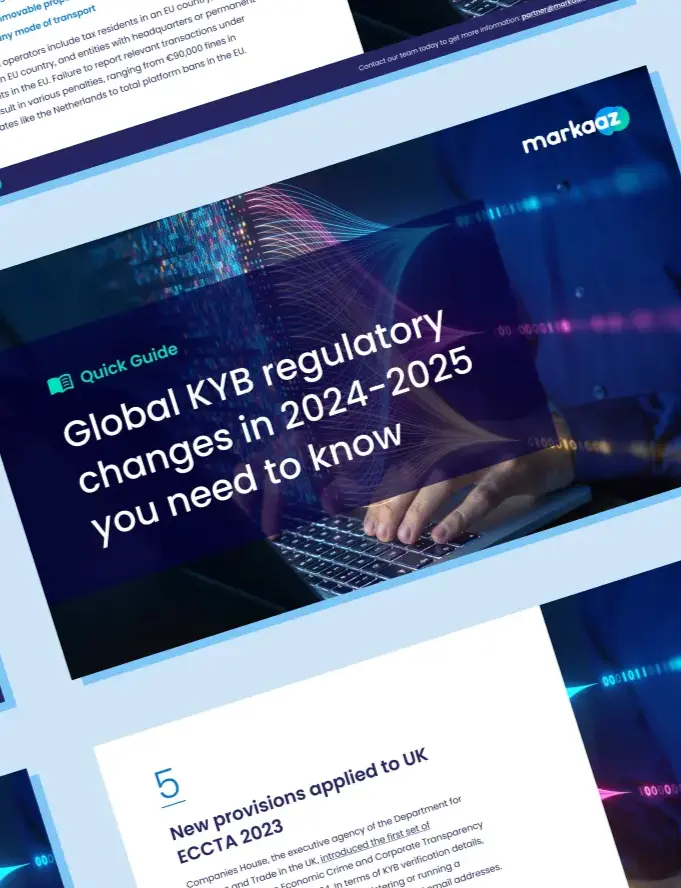We had Michelle Lambright Black, a well-known small business writer and founder of CreditWriter.com, contribute a guest post for us about business identity theft. Check it out and learn from the experts on Markaaz!
Identity theft is an ever-growing problem, both in the United States and around the globe. Yet, it’s not just individuals who can fall victim to fraudsters. Businesses—both small and large—may be at risk for identity theft too.
According to Experian, US-based companies lose billions of dollars each year in identity theft and fraud losses. These losses don’t just affect the businesses themselves, but they can also harm the lives of their employees and customers.
Due to the danger and expense that identity theft represents, it’s critical that you work to safeguard your company against this crime. Below are three strategies you can use to make it harder for people with bad intentions to take advantage of your business.
1. Monitor your business credit reports.
One of the easiest ways to detect business identity theft is to keep a close eye on your business credit reports from the major commercial credit reporting agencies, including:
- Equifax
- Dun & Bradstreet (D&B)
- Experian
You can purchase your business credit reports and scores from each credit reporting agency. Depending on the product or package you select, price points can vary widely.
With Experian, for example, you can purchase a single business credit report for around $40. You can also buy an annual package for $1,495 that allows you to check multiple reports on your business and others each month.
There are also a few ways to review some of your business credit details for free. Markaaz users can access and monitor Business Credit Risk Scores™, powered by Equifax, for their business and others.
It’s worth noting that monitoring your business credit reports won’t stop identity theft from occurring. However, this good habit can put you in a position to respond swiftly with fraud alerts, credit report disputes, and other actions if your company ever experiences this type of fraud.
Establishing good business credit requires a lot of effort. It’s critical to monitor your business credit reports to ensure all that time and energy aren’t wasted.
2. Educate yourself and your employees.
Cyber attacks can compromise your business and make it easier for thieves to steal sensitive information. But if you educate yourself and your employees about common cyber-attack techniques, it could reduce your company’s vulnerability to theft.
Teach your team to be on the lookout for any of the following tactics that identity thieves might use to capture sensitive company information.
- Phishing scams: In a phishing scam, an attacker may pose as a business with whom you have an existing relationship (i.e., your bank, payment processor, or lender). The goal is to trick you into disclosing sensitive data. Exposure might occur if you click a link, input your login credentials, or “confirm” private company details via phone call or text. These tactics can be highly lucrative for fraudsters. In 2018 alone, losses from compromised business emails totaled several billion dollars.
- Malware: Malware is short for malicious software. It describes any program or device that cybercriminals can use to gain unauthorized access to your computer system, network, or data. Criminals may install malware on your business devices or network through email attachments, online advertisements, infected apps, and more. One click on the wrong attachment or link could expose your company.
- Low-tech theft: Although many criminals may try to steal your company’s sensitive information online, others prefer low-tech methods. Dumpster diving and mailbox theft are sometimes overlooked as threats, but they represent fundamental ways your business could be vulnerable to identity theft.
3. Establish security protocols for your team, and make sure everyone does their part.
On top of teaching your employees how to spot potential red flags, it’s essential to protect your company’s sensitive information proactively. The following best practices are a great place to start establishing your security protocols.
- Use strong passwords, and update them regularly. Everyone in your company should follow this rule, including in-person and remote workers. Whether it’s an online account or a device with access to your company network, one weak password could be all it takes to compromise your business.
- Keep software up to date. Anytime patches or updates are released, there should be someone on your team (or multiple people) with the job of installing those updates immediately.
- Sign up for paperless statements and billing. In general, digital documents are more complicated for fraudsters to steal compared with traditional paper statements and bills.
- Rent a post office box or a locking mailbox. Securing your incoming mail makes it harder for thieves to access those documents without your knowledge.
- Make shredding mandatory. It’s essential to destroy all sensitive business documents that you wish to discard so they can’t fall into the wrong hands. Better yet, keep your office as paper-free as possible.
- Review bank and credit card statements every month. If you discover suspicious activity, contact your financial institution or credit card company right away.
- Consider cyber insurance. Losses from cyberattacks and data breaches can be significant and too often insurmountable for small business owners. Cyber insurance provides financial protection in the event your business becomes a victim of certain types of cybercrime.
- Keep your business network secure. Finding trustworthy suppliers and developing strong supplier relationships can reduce your business’s exposure to fraud. Markaaz makes this process much easier for small business owners. As you work with the same trusted suppliers month after month, it may also be easier to detect any departures from normal billing or ordering procedures — signs that someone could be trying to take advantage of your company behind the scenes.
The bottom line
There’s no way to protect your business from identity theft fully. (The same is true when it comes to your identity as well.) Yet you can and should do everything in your power to make your business a less attractive target.
Identity thieves aren’t going anywhere. But if someone comes after your business and finds strong anti-fraud defenses in place, the fraudster may decide that trying to steal from you isn’t worth the hassle.
Michelle Lambright Black
About the Author: Michelle Lambright Black is a credit expert with over 18 years of experience, a freelance writer, and a certified credit expert witness. During that time, she has written for numerous publications, including FICO, Experian, Forbes, U.S. News & World Report, and Reader’s Digest, among others. She specializes in credit reporting, credit scoring, the intersection of credit and financing (business, mortgages, credit cards, loans), budgeting, and identity theft.
Michelle is the founder of CreditWriter.com and HerCreditMatters.com—blogs aimed at helping people take charge of their credit and finances to lead happier, less stressful lives. She firmly believes that everyone deserves a second chance (or a 20th chance) when it comes to money management and that any credit situation can be improved with the right plan and hard work.
When she isn’t writing or speaking about credit and money, she loves to travel with her family. She also enjoys taking Tae Kwon Do classes with her children. Michelle, her son, and her daughter all hold first-degree black belts.
You can connect with Michelle online on Twitter and LinkedIn.




